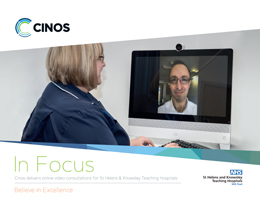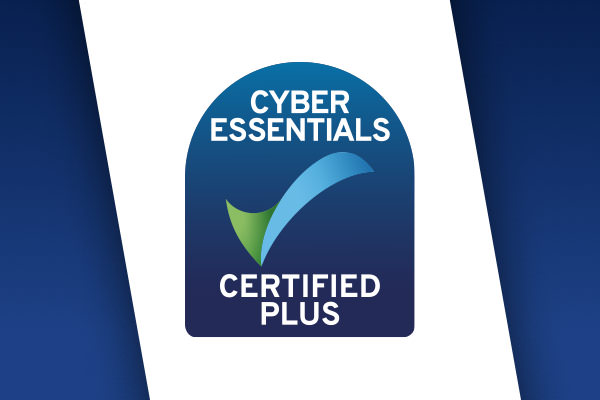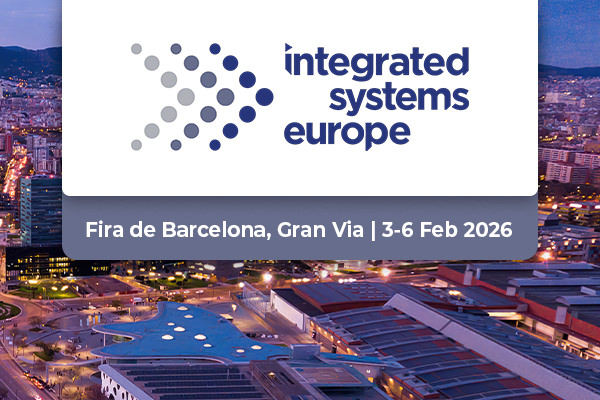Introducing St Helens and Knowsley Teaching Hospitals NHS Trust
St Helens and Knowsley Teaching Hospitals NHS Trust provides a full range of acute healthcare services across three sites at Whiston, St Helens and Newton hospitals. Their valued workforce of over 4,500 staff is dedicated to providing the best possible care to patients. Guided by the Trust’s vision to provide ‘5-star patient care’, the staff strive to meet the best standards of professional care whilst being sensitive and responsive to the needs of individual patients.
A requirement for improved NHS clinical video consultations
To deliver upon their vision of providing ‘5-star patient care’ the Trust are always considering ways in which their services and practices can be improved. From a digital perspective, the Trust initially identified two key areas where the introduction of online video consultations would improve the patient experience and use clinical time more efficiently and effectively in the care of patients.
1. Six-month stroke review
Within the Trust patient population, annually 750 stroke patients require 6-month reviews with specialist nurses. A number of these are frail, elderly patients who struggle to attend outpatient appointments and the pressures of modern living can make it difficult to attend appointments through travel difficulties, work commitments or condition and health issues.
The objective for the six-month stroke service was to see more patients in their home or care home.
2. Drains outreach service
As a regional cancer centre, St Helens staff can travel up to 4 hours a day to review one patient’s drains and wounds following major cancer reconstruction. The Trust initiated an innovative outreach service managing patients with drains inserted, in their homes within days of surgery, who would have spent up to two weeks in hospital before the drain was safely removed.
For the drains outreach service, the key objective was to radically reduce travelling time, freeing up time that could be better utilised in preparing patients for discharge, further augmenting the outreach service and dramatically improving efficiency.
The Informatics Department at the Trust held an innovation day where organisations were invited to showcase how their solutions would help the Trust achieve their objectives now and in the future. This day gave Cinos the opportunity to pitch their telehealth service; an online consultation service designed specifically for UK healthcare.
Cinos provide the solution with Cisco HealthPresence and UK Cloud
Having thoroughly assessed a number of options for the application of digital services to improve patient access to care and drive efficiency, the Trust secured funding from the Innovation Agency to initiate a cloud-based video conferencing telehealth project, delivered by Cinos, in partnership with Cisco and UKCloud Health.
The telehealth service leverages the best in breed voice and video communication technology from Cisco. With extensive experience in the healthcare sector, our team have developed this platform to enable patients and Trust staff to connect quickly and easily without being in the same room.
The versatility of telehealth ensures Trust staff can access the services easily and from a number of different devices; whether that is from one of the Cisco DX Series touchscreen devices installed onsite, or via their laptop, PC, tablet or smartphone.
For the patient, logging into telehealth couldn’t be easier. The service can be accessed online via a web portal or through smartphone and tablet applications. Once logged in, with a few simple commands the patient can be talking to a doctor or nurse, face-to-face, without the need to physically travel to the hospital.
The six-month stroke review and drains outreach clinics were the initial focal point for the application of this technology.
Benefits of our Cisco HealthPresence configuration to the NHS
A comprehensive benefits realisation plan was created and the current state baselined. The desired outcomes for patients were simple; improve the patient experience, with convenient, less stressful consultations arranged to suit patient’s requirements and needs.
The results have been outstanding. The uptake of telehealth appointments over traditional visits to the hospital has been greater than initially expected, with 100% of both stroke and drains patients, who were offered the choice, opting for a telehealth appointment in the future. The feedback from patients has been brilliant, so much so that when asked if they were happy to be discharged one patient said, “I don’t want to be discharged, I want to do this again!”
The organisational benefits have been equally as impressive. Telehealth has enabled process change which reduces did not attend rates significantly, providing efficiencies in more available appointments and more consulting time through the agile working nature of the technology.
While patients benefit by being cared for in their own location, the Trust benefits too. Less patients visiting hospitals directly results in less strain on facilities, including car parking. The enablement of agile working directly increases the number of locations that care may be delivered from and to, freeing up expensive estates space and enabling clinicians to work from many alternative locations.
Adopting telehealth in the drains outreach service has enabled drains outreach nurses to conduct video-based consultations rather than visiting patients in their own home. In some cases, this has enabled operational efficiency of up to four hours per nurse per day, and a significant reduction in travel expenses for both nurses and patients.
Assessing the patient over video, whilst they are in their home environment will highlight safe-guarding issues, which might otherwise be missed. However, if during the Telehealth consultation, the clinician considers a face to face appointment necessary, the patient will return to the hospital setting for their appointments.
Spending more time with patients will also build better patient relationships and better outcomes, particularly as we remove the stress of attending hospital for the appointment and could improve compliance with prescribed regimes with patients receiving more education from the clinician and be more invested in their own care, resulting in better management of long term health conditions.
It is safe to say the introduction of telehealth at the Trust has been an outstanding success. Trust staff have found the solution easy to use and patient adoption could not have been better. We are already in talks about how telehealth can deliver efficiencies in other divisions of the Trust and look forward to delivering this in the near future.
| Telehealth has offered a range of benefits for our patients and for our team. Many stroke survivors find it difficult and time-consuming to come to hospital for appointments: patients using our telemedicine clinic have found this process much more convenient and adapted to the different style of consultation really well. We continue to find unexpected benefits from being able to assess patients directly in their own home – from patients being able to simply fetch their medication if they have forgotten it, to be able to visibly see if a patient has issues in their own environment. Family members have been keen to support patients who can’t use the system themselves, so engaging families is equally important in ensuring successful take-up. We have been really pleased with the way this project has changed how we run the clinic and can see lots of future potential to use telehealth in other parts of our service. |
||
|---|---|---|
|
Dr Hill
Consultant Stroke Physician |





